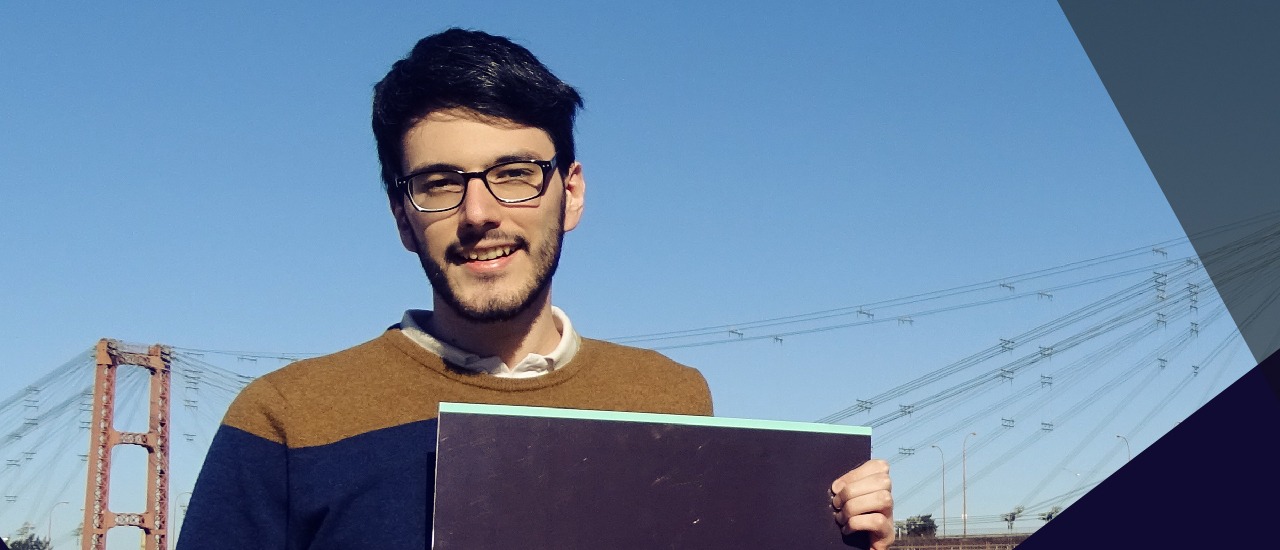Last year, the Internet Society unveiled the 2017 Global Internet Report: Paths to Our Digital Future. The interactive report identifies the drivers affecting tomorrow’s Internet and their impact on Media & Society, Digital Divides, and Personal Rights & Freedoms. In April 2018, we interviewed two stakeholders –Getachew Engida, Deputy Director-General of the United Nations Educational, Scientific and Cultural Organization (UNESCO), and Augusto Mathurin, who created Virtuágora, an open source digital participation platform – to hear their different perspectives on the forces shaping the Internet.
Augusto Mathurin is a 25-year-old Argentinian who strongly believes in the need to enable all people to participate in decision-making which can impact them and their communities. With this in mind, Augusto developed an open source digital participation platform as part of a university project. The main goal of this platform, Virtuágora, was to create a common space in which citizens’ opinions and their representatives’ proposals could converge. The concept was derived from the Greek agora – the central square of ancient Grecian cities where citizens met to discuss their society. In 2017, Augusto was awarded the Internet Society’s 25 under 25 award for making an impact in his community and beyond. (You can read Getachew Engida’s interview here).
The Internet Society: Your reason for creating the multistakeholder platform Virtuágora in your home town shares similarities with the notion of multistakeholder participation in Internet governance. What challenges do you think are plaguing participation in these types of crowdsourced platforms and Internet governance today?
Augusto Mathurin: It’s still really difficult to involve government in these kinds of collaborative mechanisms. While the challenges we have to tackle – like digital divides – need the input of multiple stakeholders, governments are sometimes fearful of collaborating with other stakeholders because they think it means they’ll lose their sovereignty. This challenge is compounded by the fact that governments tend to operate in election cycles, making it difficult to get sustained commitments to collaborative decision-making models.
On the other hand, participation is to some extent becoming easier with emerging technologies. Video calls, for instance, have made it possible to have real conversations around the world, which is a real improvement. There is still a lot of work to do to improve remote participation, however.
What role do you think other technology has to play in sustainable development in developing regions (like Latin America)?
Open source technology, in particular, offers a great opportunity to achieve sustainable development in developing regions. When someone develops any kind of technology and publishes it as open source, it doesn’t matter where it was done because from that moment it starts to belong to everyone. Remote and neglected communities can take these open technologies and replicate them to create solutions for their problems.
Community networks are a great example of this, but there are a lot of initiatives in other areas like green energy, mobility, health, education, etc.
What trends do you think will impact information societies in three to five years? What role will or do algorithms play?
Many organizations are spending a lot of money on virtual reality and augmented reality. I think all the trending technologies in the future will continue to merge the virtual world and the real one.
While algorithms play an increasingly important role in, for example, the media, it is important to always place people first. When we talk about the media we are talking about trust, and we cannot trust algorithms when we are not even sure if they are running without being manipulated or corrupted. On the other hand, when a person is communicating something, she would put her reputation at risk if she said something fake. I’m sure that AI can help offer quick and efficient organization and filtering of data, but I think we will need good journalists we can trust at least for some more years to come.
What do you think about increasing calls in various countries to regulate online platforms like Facebook more strictly? Do you agree or disagree?
Platforms extract data from us and from our devices compulsively, and that’s clearly wrong. But regulation is not necessarily the solution. It’s problematic that we are using systems in the cloud that are like black boxes and there’s no way to audit them in an efficient way. We can promulgate laws and impose penalties, but these companies can just pretend they are complying with the regulation and at the same time could still be collecting our data without consent.
We had the Volkswagen emissions scandal as proof of how hard is to assure systems are according to the regulation. In 2015, it was discovered that Volkswagen had intentionally programmed one of its diesel engines to activate their emissions controls only during laboratory emissions testing to meet US standards, but emit up to 40 times in real-world driving.
When we start talking about platforms in the cloud, it’s even harder to do regulatory compliance audits, and so stricter regulatory measures are useless. The solution is not in regulation, but it rather lies in embracing open technology.
What are your hopes for the future of the Internet? What are your fears?
My biggest fear is that virtual spaces are becoming more and more centralized. I fear that our online rights might be at stake because we are delegating so much control and power to just a handful of companies.
Luckily the spirit of the Internet is open. My hope is that more people will develop even more open technologies, in a collaborative manner and with the possibility of replicating it in other environments. At the same time, I hope that more people will become more aware of the challenges facing the future of the Internet.
What do you think the future of the Internet looks like? Explore the 2017 Global Internet Report: Paths to Our Digital Future to see how the Internet might transform our lives across the globe, then choose a path to help shape tomorrow.
